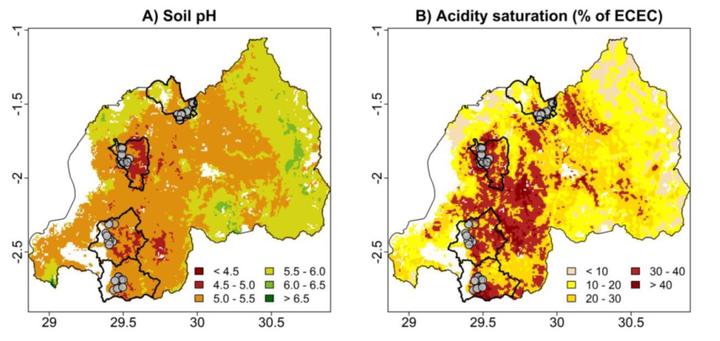
Abstract
Soil acidity is a major constraint to crop production in tropical regions. Although agricultural lime is one option to remediate acid soils, there is limited information on the potential returns on investments to liming by smallholders. Using survey data collected from 261 households in Rwanda, we estimated the crop-specific yield response to lime application and associated financial benefits. The estimated average yield gain from lime ranged from 941 kg/ha to 1 579 kg/ha for Irish potato, 562 kg/ha to 709 kg/ha for maize, and 453 kg/ha to 520 kg/ha for beans. With the existing lime and farmgate crop prices, reliable returns on investment from lime were observed for Irish potato, while applying lime to maize and bean was only profitable at a 50% lime price subsidy. As maize and beans are the major staple crops in Rwanda, the subsidy for ag-lime use in improving crop productivity is highly justifiable. The results inform policy decisions in considering market-oriented crops and subsidies when promoting agricultural lime in acid soils under smallholder conditions.